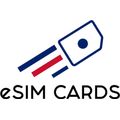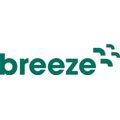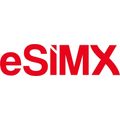eSIM Cards, une marque de Pentagram Systems, a pour vocation de révolutionner votre façon de rester connecté au Royaume-Uni et en Europe. En tant que fournisseur leader de la technologie eSIM, nous proposons des solutions fluides et innovantes, adaptées aux besoins des voyageurs modernes, des professionnels et des passionnés de technologie. Notre mission est de vous offrir une connectivité instantanée et sans tracas, où que vous soyez au Royaume-Uni ou en Europe.

eSIM Cards, une marque de Pentagram Systems, a pour vocation de révolutionner votre façon de rester connecté au Royaume-Uni et en Europe. En tant que fournisseur leader de la technologie eSIM, nous proposons des solutions fluides et innovantes, adaptées aux besoins des voyageurs modernes, des professionnels et des passionnés de technologie. Notre mission est de vous offrir une connectivité instantanée et sans tracas, où que vous soyez au Royaume-Uni ou en Europe.
Forfaits de données eSIM eSIM Cards pour le Mexique
Questions fréquemment posées
Est-ce que eSIM Cards offre une eSIM à données illimitées pour le Mexique?
eSIM Cards ne propose pas de forfait eSIM illimité pour le Mexique. Les forfaits spécifiques au Mexique disponibles comportent des limites de données fixes. Pour les voyageurs qui nécessitent une grande quantité de données, des forfaits fixes tels que le Mexico 20GB Travel eSIM valable 30 jours au prix de $38.83 USD et les forfaits 100 GB Global pour 5 jours (62.67 USD) ou 10 jours (69.48 USD) sont disponibles, ainsi qu'un forfait 50 GB North America valable 30 jours au prix de $108.71 USD. Ces forfaits fixes sont généralement plus rentables, sauf si un utilisateur prévoit un usage très intensif de données au-delà des limites prévues.
eSIM Cards propose-t-elle une eSIM Mexico avec numéro de téléphone et SMS ?
eSIM Cards ne propose aucune eSIM Mexico avec numéro de téléphone ou capacité SMS ; tous les forfaits disponibles auprès de ce fournisseur pour le Mexique sont uniquement en données. Les voyageurs peuvent encore utiliser des applications VoIP telles que WhatsApp, Telegram et iMessage sur la connexion de données pour passer des appels et envoyer des messages.
Combien de forfaits de données eSIM Cards propose-t-il pour le Mexique ?
Les cartes eSIM listent actuellement 3 forfaits de données un pays et 9 forfaits multinationaux couvrant le Mexique. Les forfaits disponibles varient en prix d'environ 3, 95 $ à 108, 71 $ et en limite de données de 1 Go à 100 Go, avec des périodes de validité allant de 5 à 30 jours. Certains forfaits autorisent également le tethering, offrant aux voyageurs la flexibilité de partager les données entre plusieurs appareils.
Résumé avec Gen AI. Dernière mise à jour:




